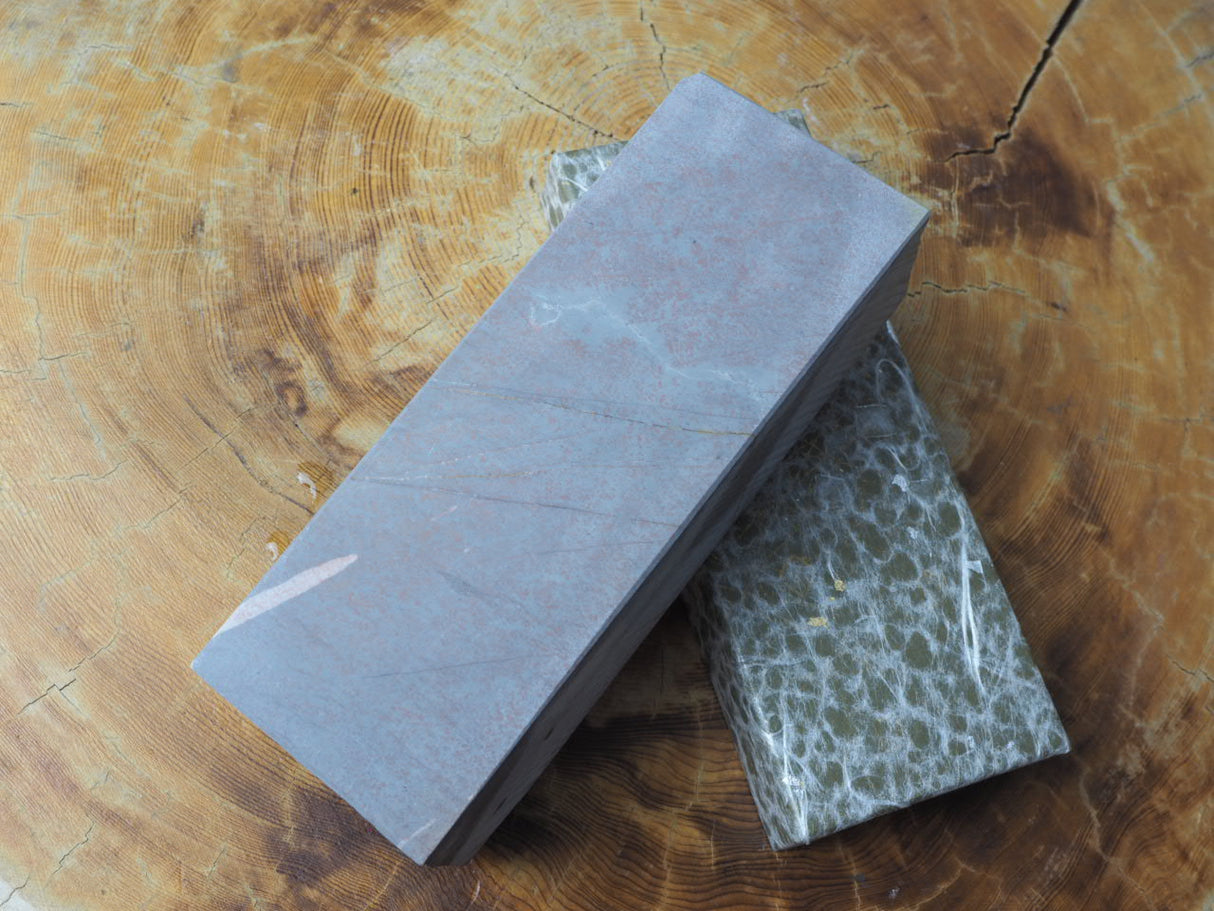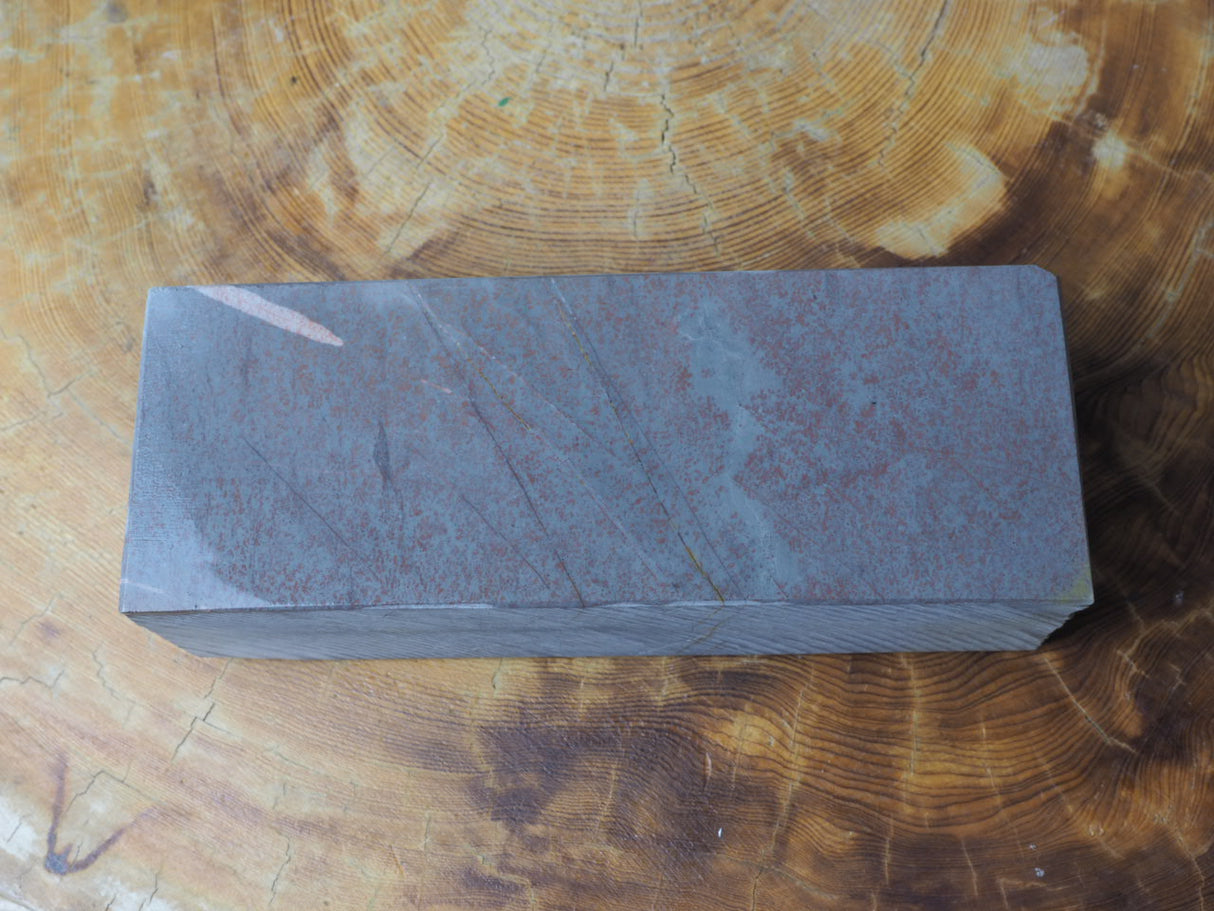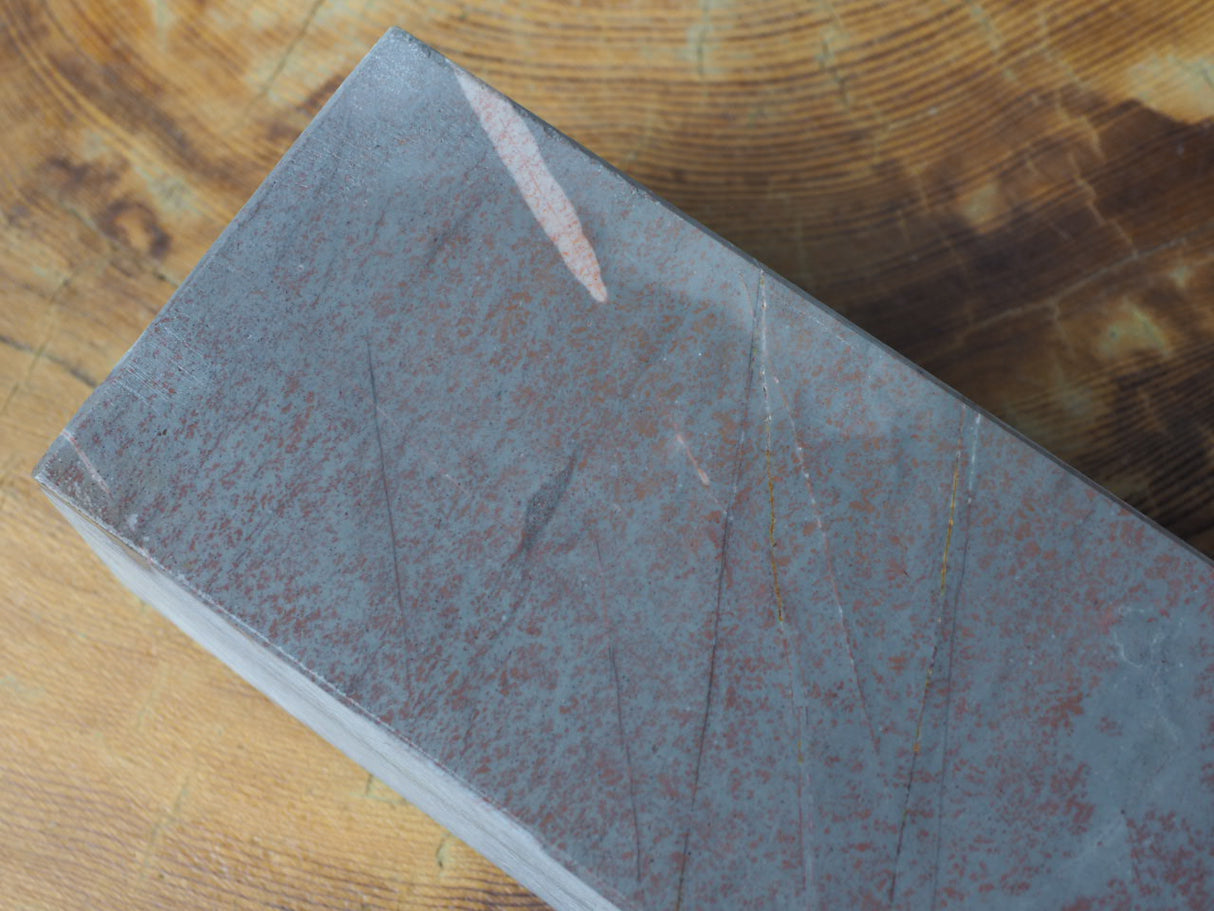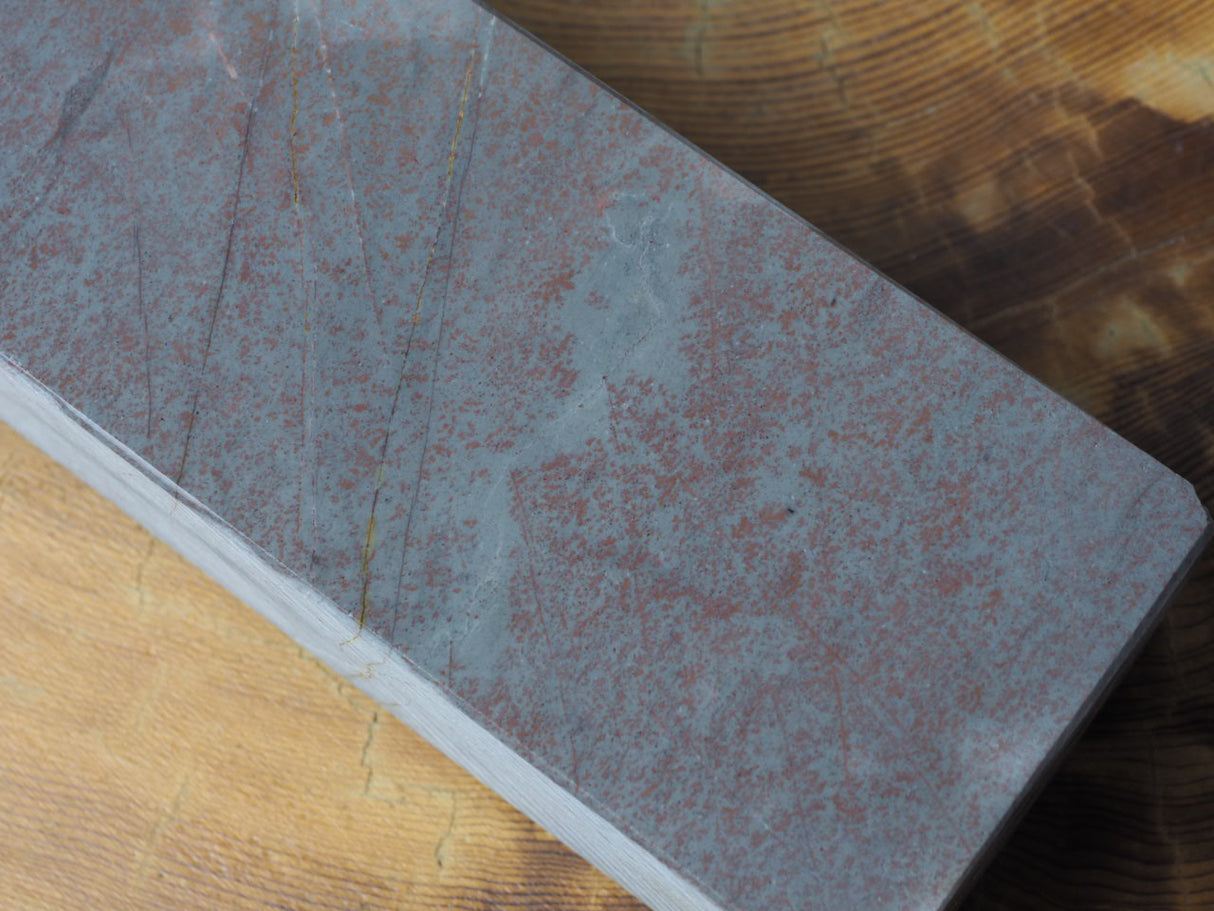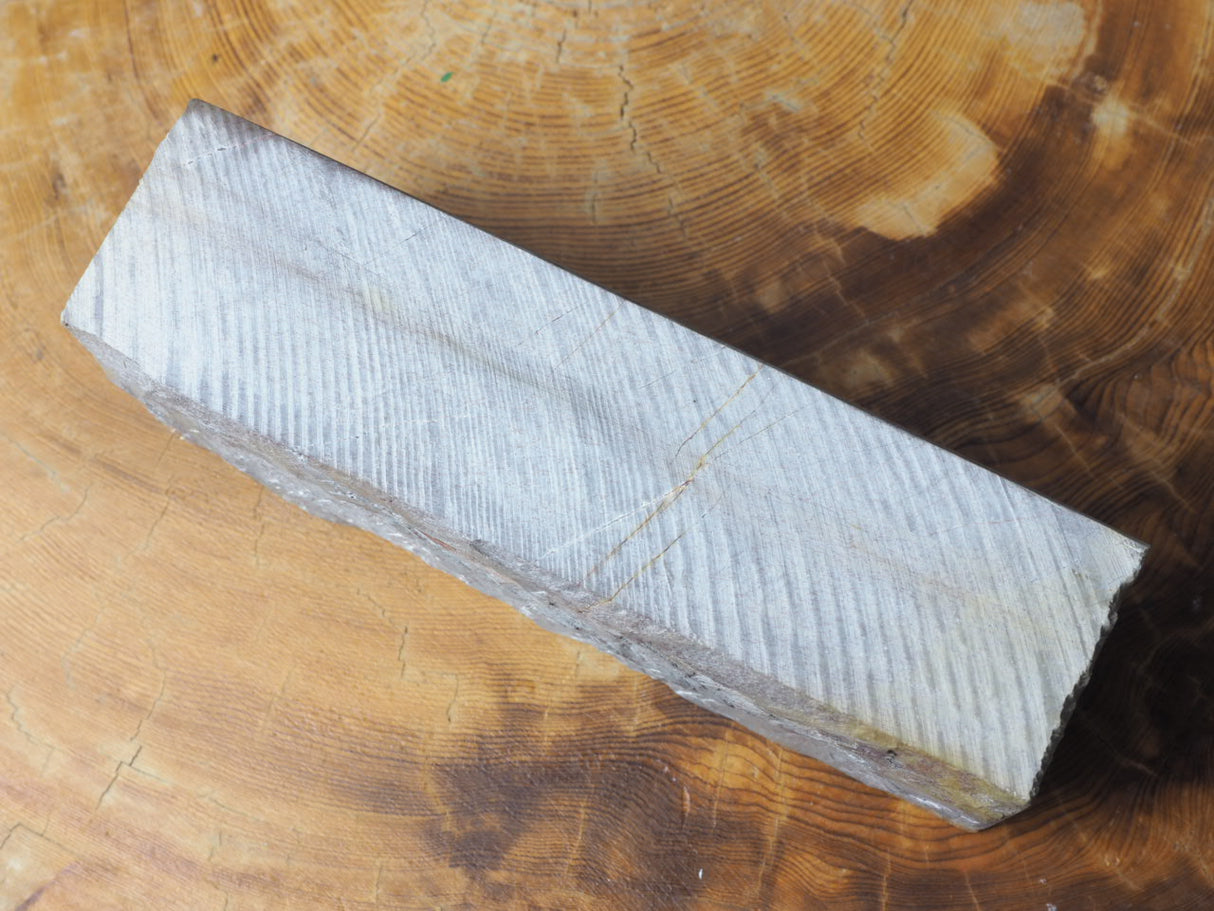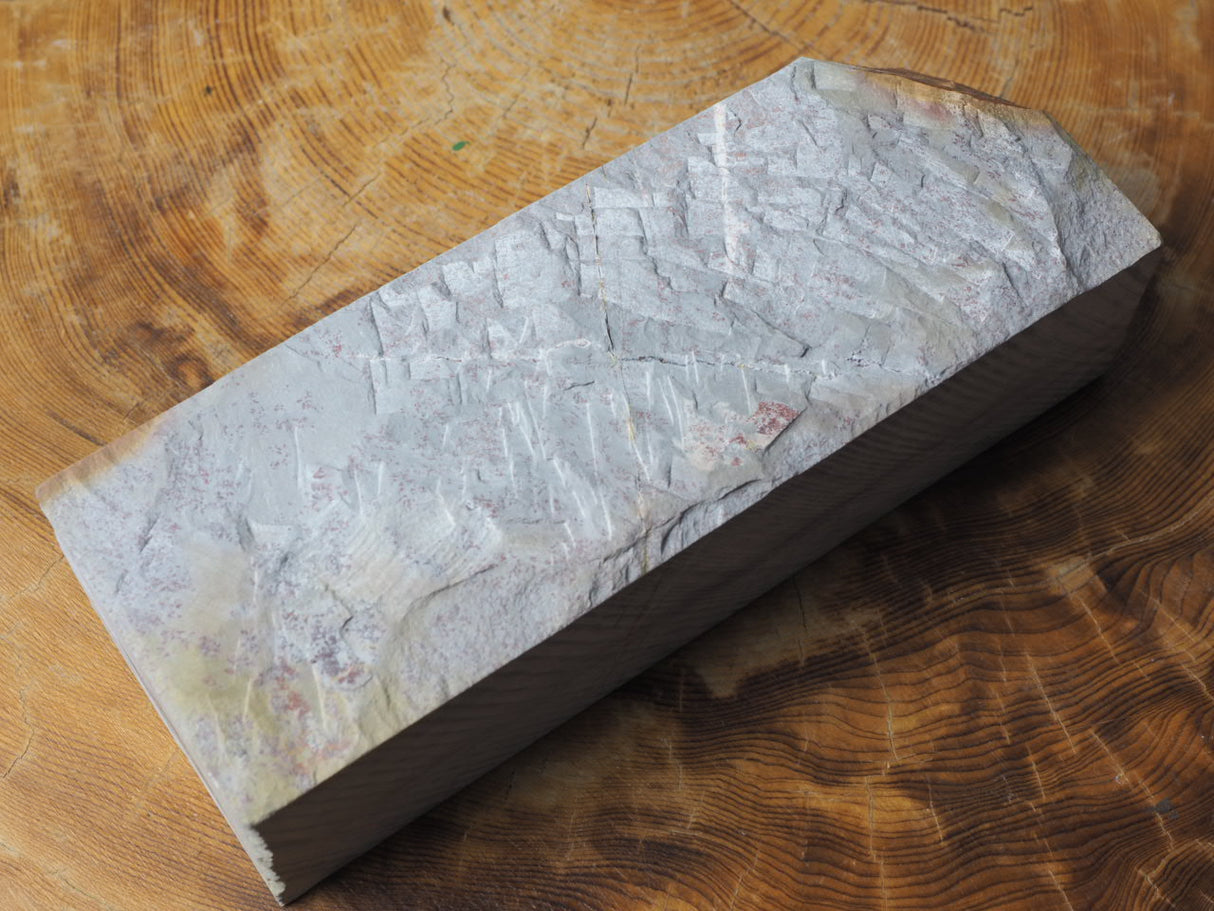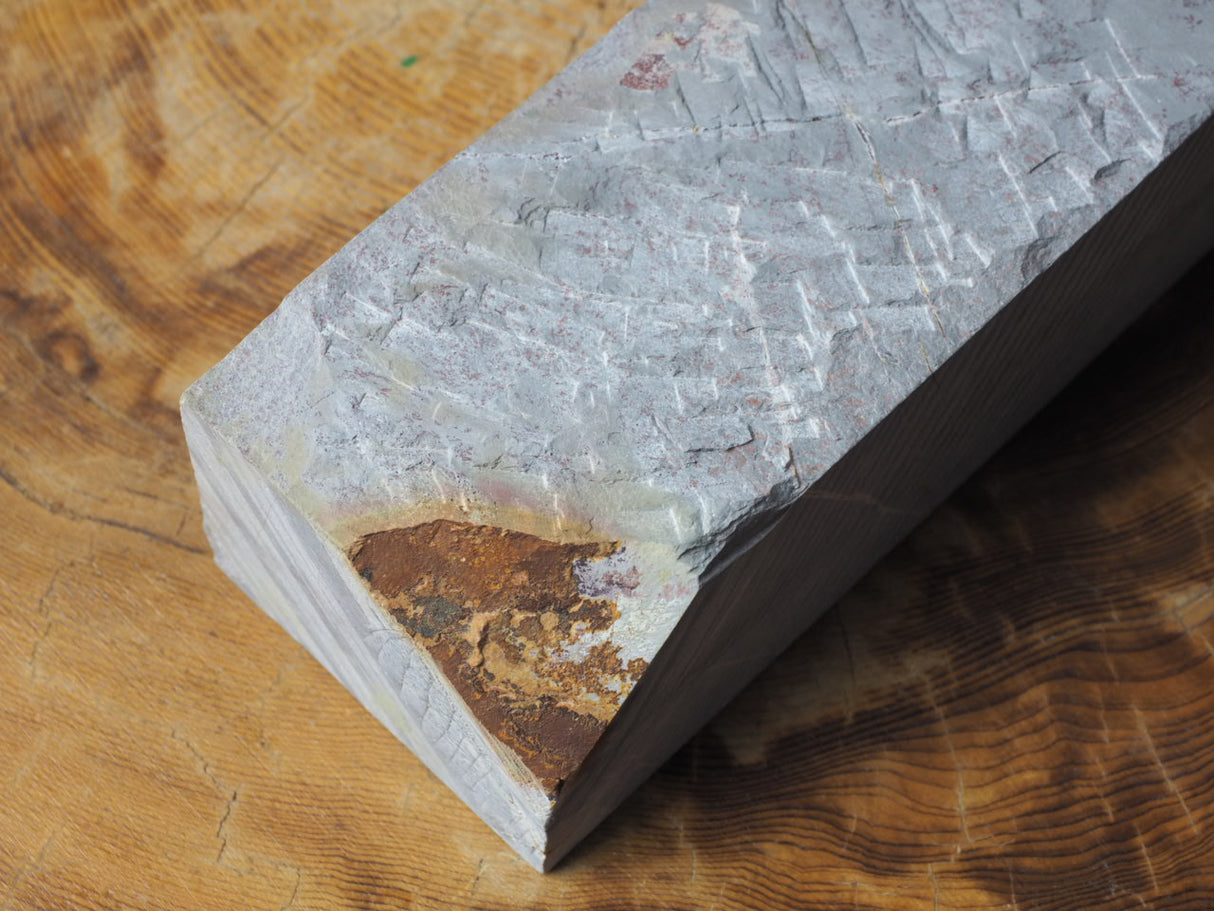Jnat (Japanese Natural Whetstone) - Ohhira Uchigumori A -Jibiki (Hard type)
Couldn't load pickup availability
Length: 161mm
Width: 60mm
Height: 45mm
Weight: 1068g
Hardness :★★★★
What is Uchigumori whetstone?
Uchigumori is a Japanese natural whetstone mined in Ohira, the vicinity of Kyoto. They are very fine finishing stones for sharpening, basically aimed at sharpening Japanese swords. These beautiful-looking stones allow you to achieve a distinct Kasumi (hazy-looking) finish for your single edged Japanese knives as well as exquisite sharpness.
Any Uchigumori stone can be utilised to acquire the above result, but technically it can be categorised into 2 types - Habiki (soft type for the core steel) and Jibiki (hard type for the cladding steel). Those that are crashed into small pieces are commonly called finger stones, having different names as Hazuya and Jizuya.
Why our Uchigumori reasonable?
Uchigumori in perfect condition is usually traded at 5 to 10 times higher price, yet we brought up ones in imperfect condition (commonly known as Koppa). They have rough surface which requires substantial amount of time for flattening as well as streaks and cracks.

We treat every aspect of inconvenience for sharpening and processed them into rectangular stones, just like the brand new natural stones we sell. If you don’t mind the imperfect appearance and necessary avoidance of streak lines when sharpening, these Uchigumori whetstones do help get the same result as the pricy alternatives.

How we process Koppa and make it into a proper Uchigumori stone
As the surface of Uchigumori is very rough, it first needs shaping with a peripheral grinding whetstone, followed by the Atoma diamond flattening stone in order to achieve the perfect flatness.


After that, we try sharpening and check if there are any streaks that cause a possible snag. We saw them off and have the line dented so that your strokes will not get caught. We re-try sharpening and get it ready for use by customers.


Recommended to use Nagura stone for more comfortable sharpening
Uchigumori whetstones are very solid, but using it with Nagura stone will facilitate muddier and easier sharpening.

Maintenance for natural whetstones
Do not soak in water. Water penetrates into the layer of stone, causing it to crack.
Recommended to protect the sides with cashew coating from cracking.
After use, wash with running water, wipe, wrap the stone with dry cloth and leave in a cool place. Please avoid direct sunlight.
Complimentary cashew coating service
Only available for natural whetstones you purchase from us. We offer a cashew coating for those taking extra care of the stones. It takes a week for pickup as we apply cashew 3 times on the sides and it needs to be completely dry.


Why is Jnat (Japanese natural whetstone) so valuable?
Japanese natural whetstones are the final destination for those seeking the best result of sharpening. At Kaz’s knife and Kitchenware, we have a variety of natural stones, most of which are Kyoto’s Shohonyama Awasedo, known as the highest-grade finishing stones. Many of the sites for natural whetstones have been closed, so natural whetstones available in today’s market are limited in number, and the prices are expected to rise due to its scarcity value.
Some trivia of Jnat
The natural whetstones suited for finishing purposes are mainly siliceous slate and siliceous shale. These are further narrowed down to the ones that meet several requirements such as hardness, evenness of abrasive and absorption of water. Geographically, it is proven that Kyoto and its surrounding have the ideal stratum for natural whetstones, where layers of clay and radiolarian have slowly accumulated on the ocean floor in the equatorial regions at a rate of 1mm per a thousand years since the ancient Permian period (about 250 million years ago). Then, it traveled to the current location in Japan through crustal movement on the ocean plates.
Why do we sharpen with Jnat?
Popularity of Jnat has grown because of the beautiful finishing results on the blade surface. It creates the distinct contrast between the edge line and cladding steel as well as natural luster that evenly appears throughout. Exceptional sharpness is also the point why users prefer Jnat. Furthermore, its delicate abrasive performance prevents excessive grinding on the steel, which often leads to rust developed on scratches. Overall, Jnat enables more precise and even-toned sharpening.
-
my_fields.specification-
Payment & Security
Payment methods
Your payment information is processed securely. We do not store credit card details nor have access to your credit card information.
Frequently Asked Questions
Shipping
What countries do you ship to?
What countries do you ship to?
We ship orders from Melbourne. As well as everywhere within Australia, we ship to United States, Canada, New Zealand and some European countries. If your area is not listed in the checkout, please let us know.
How long will it take to receive my order?
How long will it take to receive my order?
Shipping timeframe depends on Australia Post. Parcel post shipping normally takes 1-4 days while express post shipping ensures more prompt delivery. International shipping times depend on the destination (estimated at checkout).
Do you bear import tariffs?
Do you bear import tariffs?
No, import tariff and any fees accompanying have to be paid by customers.
Returns and Refunds
How do I return a product?
How do I return a product?
First if all, please contact us by email: info@kazsknifeonline.com.au.
Items must be returned within 30 days after receiving your order. Items must be returned in the same condition in which they were received, be unused, including all the original packaging.
Upon items returned and confirmed to be resalable, we will process a refund for the item.
How long will it take to receive my refund?
How long will it take to receive my refund?
It usually takes 3-5 business days from the time we process the refund until you receive the money.

